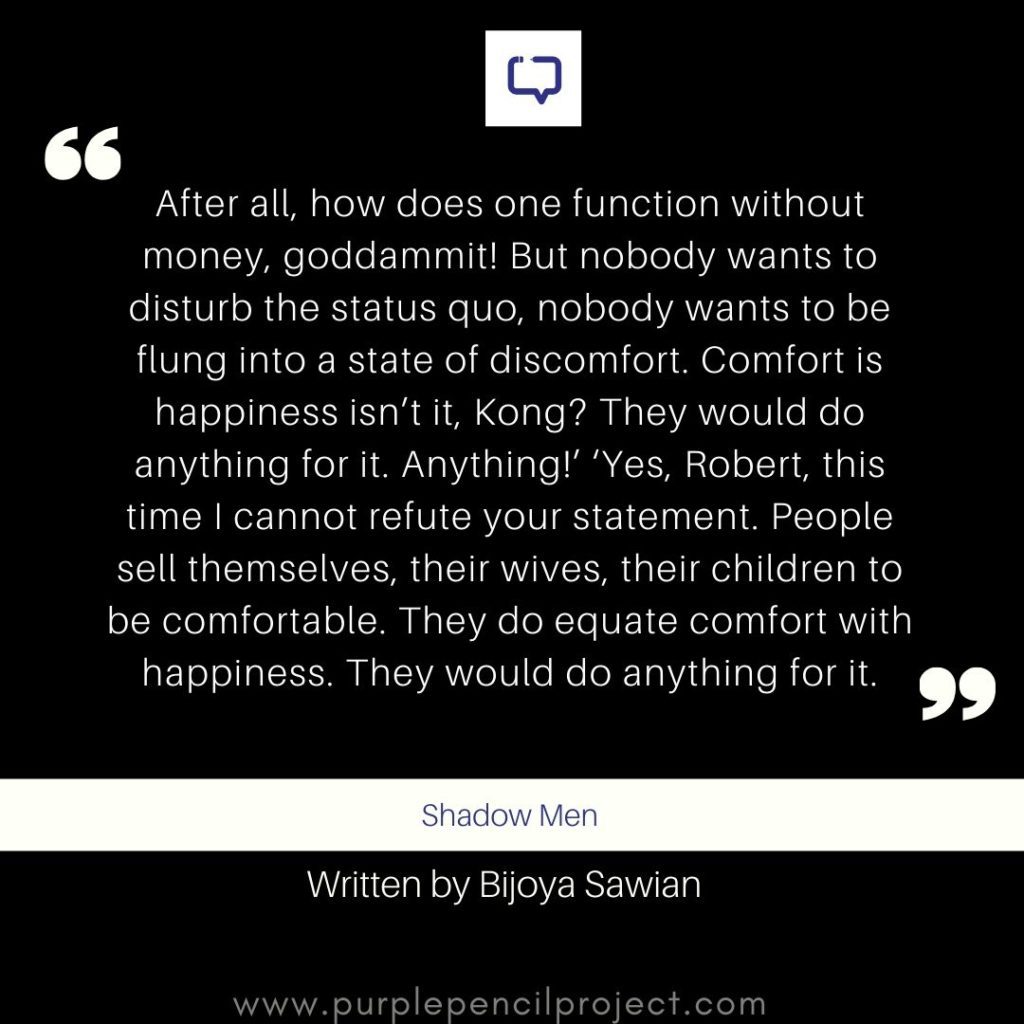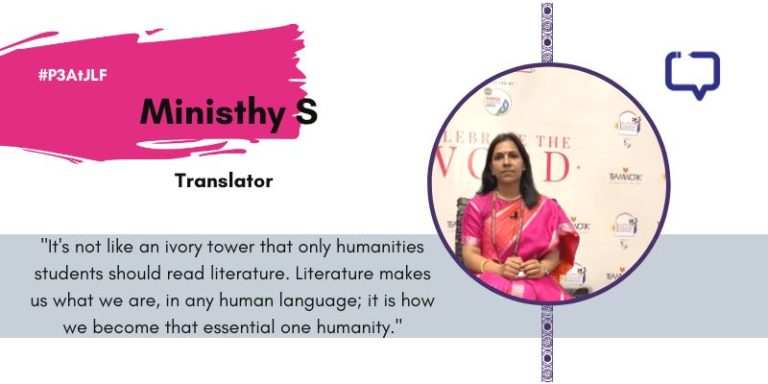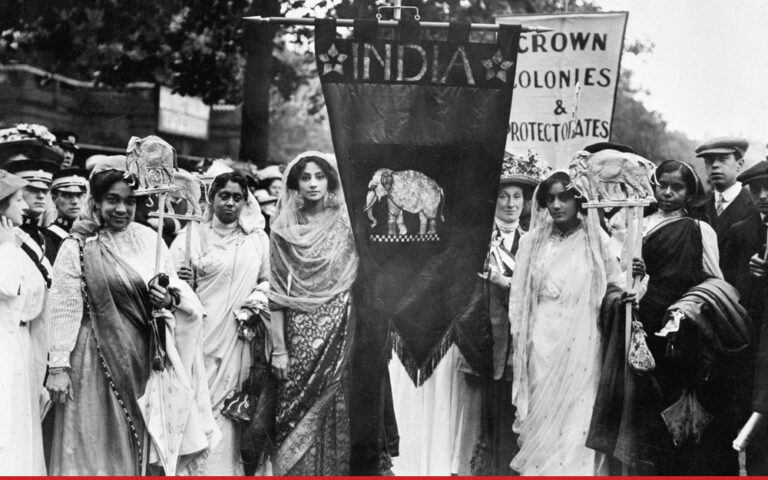Shadow Men by Bijoya Sawian, is a combination of a novella and two short stories, published by Speaking Tiger books. It is set in Shillong and it is the city, as much as the plot and characters that take centre stage here.
We encourage you to buy books from a local bookstore. If that is not possible, please use the links on the page and support us. Thank you.
The Novella
The titular novella, Shadow Men, comes across as a whodunnit. It takes us to an isolated house where Raseel, the protagonist, who is visiting her old school friend Aila hears the sound of shots followed by the ephemeral presence of three men. Puzzled, she is determined to uncover the truth behind the murder of a dkhar (outsider or non-native) on the grounds of her host’s house.
She eventually finds herself in the crossfire of local violence and insurgency as she seeks to find out why the man was killed and who were his killers.
Matrilineal societies, cultural and geographic history, and local traditions (the fourth chapter has an absolutely lovely description of tea time at 5 PM in Shillong) all weave into the narrative.
In terms of the narrative, there is an alternate PoV where every chapter begins with a context of the larger narratives interspersed with the personal journey of Raseel.
Apart from Raseel, there is Aila who she is visiting, their friend Sngithiang, the stoic Robert and the maternal Kmie. There are also strong Ksan, characters who lurk in the shadows.
Shillong remains the true hero in these stories, as Bijoya Sawian draws the reader into a world of political clashes, and communal problems but also warmth and heart, painting a picture at once real and surreal.
Everything from the moss-covered forests, the windswept roads, and the rain create an atmospheric smog that as a reader we trudge through.
The Short Stories
The novella is followed by two stories, The Flight and Limp, which once again highlight the theme of the outsider.
The Flight takes us from dkhars to vais (another word that demarcates outsiders). It’s a love story with the ‘us’ versus ‘them’ trope. 18-year-old Mawii, who is from Aizwal, is torn between the decision choose either love or land. It’s a little abrupt but brings in a perspective of how the person is influenced by the political and how our agency in our own lives is limited.
The second and last story Limp is the story of a Bengali man from Bangladesh who had come to the idyllic Shillong as an immigrant in his 20s and finally embraced this foreign land as home.
Out of the three stories, I felt a sense of kinship with the last, as it leaves you with a sense of hope.
Coming to a culture
However, the novella Shadow Men is undoubtedly the most important work here and almost smacks you in the face with a lot of facets of land which mainstream India forgets.
As a reader, I also found the nuances and names absolutely delightful, be it Kmie U Flin or Sngithiang (though I did struggle with pronouncing them in my head as I read and wished there was a glossary of sorts at the end because it was not easy to find information on it.
She kept chewing her kwai as if that is what she does every morning—leaning on a little wooden gate of a cottage inhabited by Bengalis. It was amazing, Nipenda—such a nice lady and so strong, a true Khasi woman. But still—why did we have to come here where the locals do not like us?
They feel we are taking away their jobs and opportunities in the offices especially. But there are exams for all this, aren’t there? There is nothing unfair, surely. They have shops too like we have. Bara Bazaar is only for the locals and my…it is so huge—the biggest market I have ever seen.’
Nipen’s eyes had smarted as the wind rushed through the pines and he could smell the aroma of wet trees and an approaching spring. ‘This is home where the pines are. This is home,’ he whispered.
‘Indeed not, Nipenda, indeed not. Let us not fool ourselves. Why did we come here? Why? I want to go back to Sonamgunj and bathe in the ponds while Thakurma sings—sohag chand badoni nacho to dekhi/ Bala nacho to dekhi/ Balo nacho to dekhi…Why did we come here, Nipenda? Why?’‘For a better life, Soma, for a better life.’
While Shadow Men is a slim book at 168 pages, it packs in a lot of themes. If you are not aware of the insurgency and violence, then parts of this might be an eye-opener to you. The identity crisis of the Khasi male is startling and something completely missing from the (little) discourse we see or hear.
At the heart of the book, it is not about us versus them but a wake-up call to realize that xenophobia instigates only violence and pain.
Conclusion
Perhaps my complaint as a reader was that it was too short. I would have happily read a 500-page novel that deeply acquainted me with the story. The writing sometimes does not let us fully immerse in the characters as the plot moves along. It felt as if I had reached out to touch the hands of a character only for them to withdraw their own, too quickly.
Recommended for Indian literature enthusiasts and people who would like to read an accurate, intimate portrayal of Shillong and get introduced to Khasis.
Read Shadow Men to discover the idea of dkhars, reservation issues, labourers from Bihar, Ward’s Lake suicides, the role of unions, gipsies, homemade Khasi meals, Richmond ham sandwiches and more.
If you are already from Shillong, then this definitely deserves a space in your bookshelf for the familiar nostalgia it would seep you in.
Favourite Quote:






















